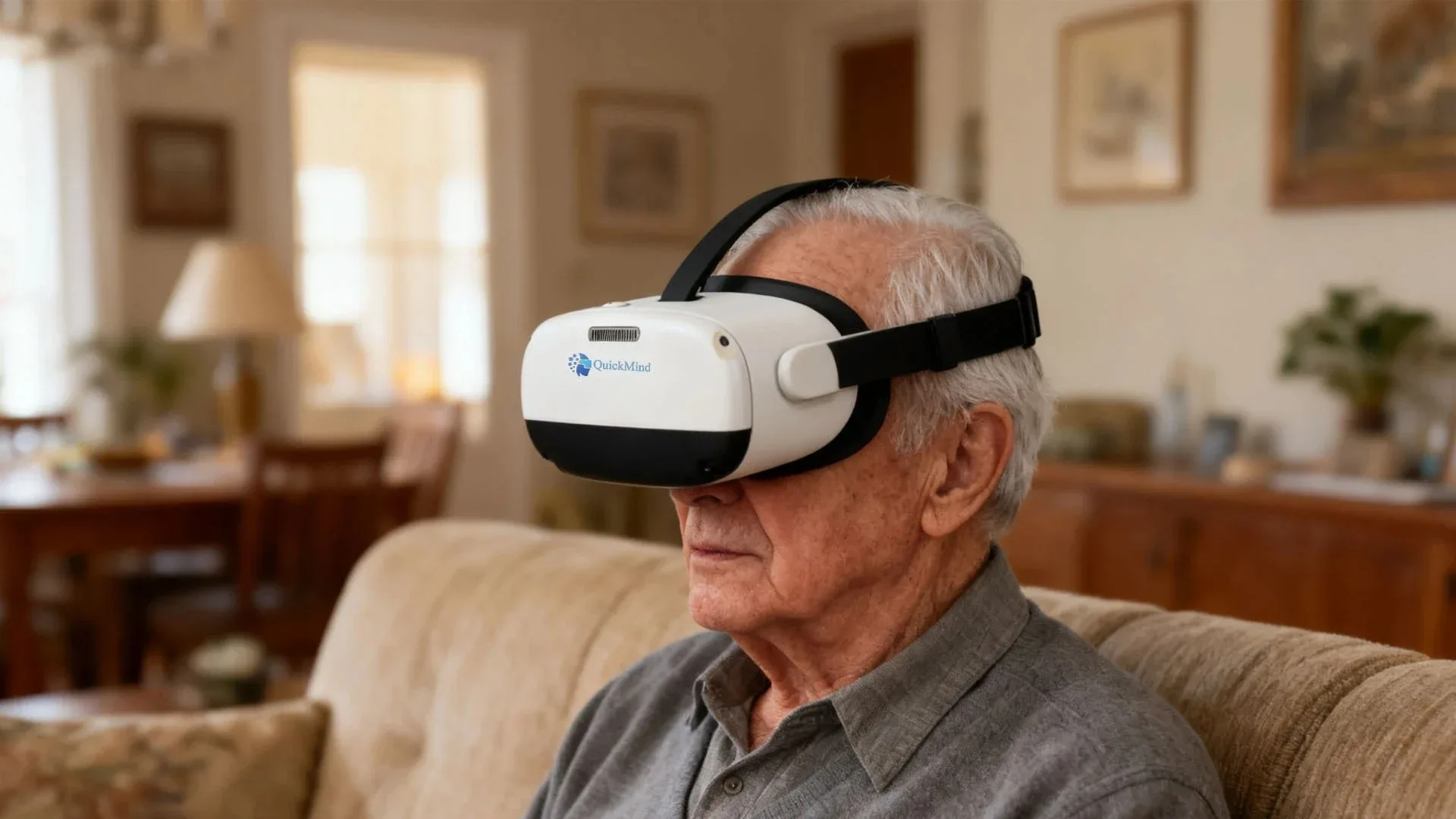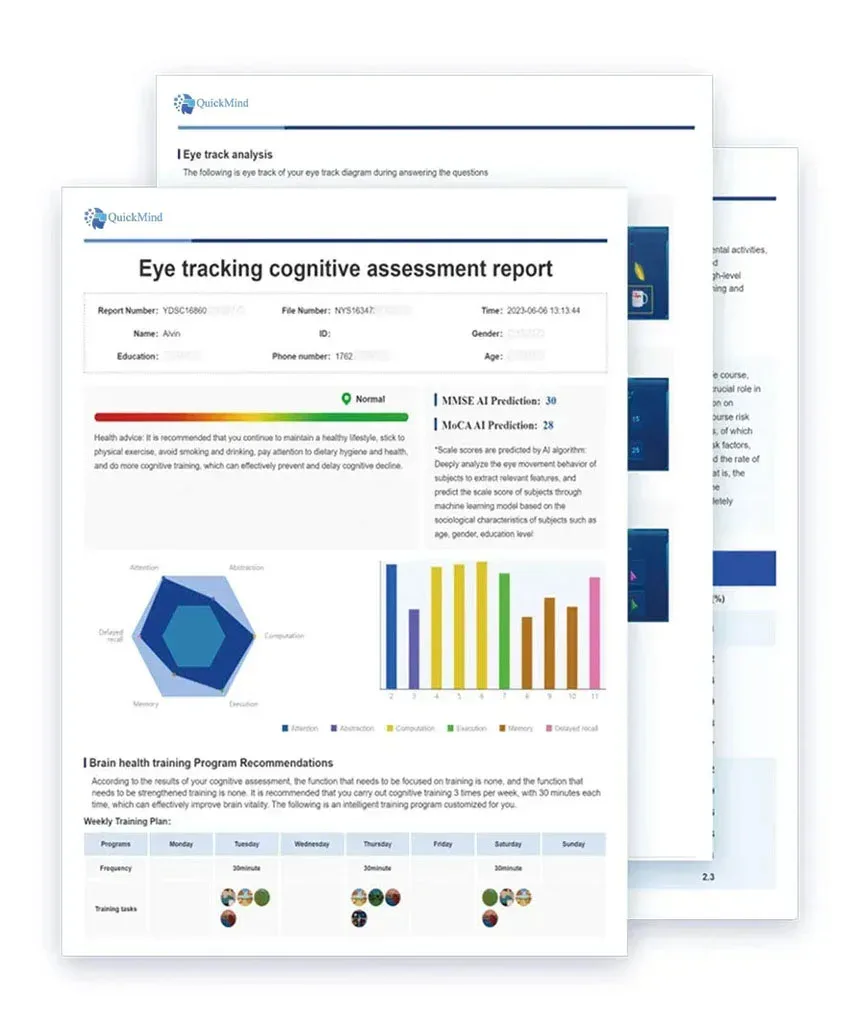
Growing analyses suggests that interactive virtual spaces treatment can markedly refine the states of individuals diagnosed with cognitive decline. By transferring them to peaceful surroundings, VR creates a unique option for intellectual provocation, feelings management, and interpersonal communication. Several research works have confirmed that VR therapy can lower excitability, fear, and sadness in dementia persons affected while also enhancing their recall, mindfulness, and conversational capabilities.
- VR allows patients with dementia to retrace precious moments through responsive illustrations.
- Moreover, it can deliver a secure and nurturing space for relational participation, enhancing a awareness of affiliation and affiliation.
- Authorities conclude that VR therapy has the potential to transform dementia help by supplying new and advanced techniques to manage the challenging challenges faced by people managing this condition.
Tech-Driven Cognitive Therapies for Alzheimer's Patients
Developing online approaches are exhibiting benefits in the realm of mental improvement for subjects diagnosed with Alzheimer's ailment. These tools tap into electronic devices to activate brain performance and possibly mitigate the progression of the health issue. Fun-packed tasks, personalized guidance, and intellectual training are some samples of strategies being analyzed in this flourishing sector. While experiments are underway, digital therapeutics afford a additional avenue for enhancing the well-being of those dealing with Alzheimer's ailment.Virtual Scenario Navigation in Alzheimer's Treatment
Pertaining to subjects managing Alzheimer's disease, the steady decline of brain power and intellectual capacities can notably reduce their ability to connect with the world around them. This devastating affliction often triggers in isolation, disorientation, and a diminished self-concept. Up-to-date improvements in virtual reality technology offer a innovative chance to handle these barriers by building immersive scenarios that can trigger the brain and strengthen cognitive function.
Computer-generated surroundings created specifically for Alzheimer's affected people can immerse them in acquainted venues, such as their childhood home or a treasured public park, recalling positive memories and lowering anxiety. Through interactive exertions, these virtual scapes can also challenge cognitive abilities like cognition, awareness, and critical thinking.
The expected outcomes of virtual reality in Alzheimer's remediation are substantial. Early examinations have revealed favorable results, with cases manifesting improvements in cognitive function, mood, and overall quality of life. As this system evolves, it holds the key to changing the way we approach Alzheimer's disease, offering a new pathway for intervention and uplifting.
Virtual Memory Therapy for Alzheimer's Clients
Reminiscence therapy is a broadly accepted technique used to increase cognitive function and psychological wellness in individuals with Alzheimer's disease. This long-standing form of therapy involves engaging patients to recall past experiences, often through discussion. However, a advanced approach is emerging: VR-mediated reminiscence therapy.
This immersive platform utilizes virtual reality headsets to shift patients in lifelike environments that arouse memories from their past. By going through these virtual scenes, individuals with Alzheimer's can communicate with their past in a noteworthy way.
Can VR Help Fight Dementia? Exploring the Impact on Memory and Cognitive Function
Virtual reality (VR) is emerging as a prospective device in the fight against dementia, providing state-of-the-art ways to enhance memory and cognition. By constructing immersive scenarios, VR can guide individuals with dementia remember memories, engage in meaningful activities, and strengthen cognitive powers. Studies have reported that VR interventions can generate considerable improvements in memory recall, attention, and navigational awareness. Moreover, VR provides a safe and encouraging space for individuals with dementia to engage, reducing feelings of isolation and anxiety.
- Additionally, VR can be adjusted to individual needs and preferences, helping improved levels of collaboration.
- Considering the possibilities of VR, additional research is needed to fully understand its long-term performance in dementia care.
Reviving Recollections, Restoring Bonds: VR's Influence on Alzheimer's Social Interaction
Digital synthetic settings is emerging as a cutting-edge tool in the area of neurodegenerative conditions. By designing absorbing and mutual worlds, VR has the potential to reignite memories, cultivate social interaction, and raise the overall quality of life for patients struggling with Alzheimer's. Especially an important significant aspects of VR is its ability to shift users to cherished environments and adventures from their past. Whether it's a exploration of a childhood home or a illustration of a beloved holiday, these virtual walkthroughs can evoke happy memories and reinforce cognitive function. Furthermore, VR can support social interaction by linking individuals with others who share similar interests. This can be particularly useful for people with Alzheimer's who may have trouble with traditional social connection. By delivering a safe and compelling virtual space, VR can reduce feelings of isolation and loneliness, which are common among people suffering from Alzheimer's. Overall, VR holds immense capability for changing the lives of people with Alzheimer's by reawakening memories, strengthening connections, and elevating their quality of life. As technology continues to progress, we can expect even more imaginative applications of VR in the field of dementia care.Enhancing Cognitive Training: Exploiting VR as Cognitive Aid in Alzheimer's
Virtual reality is rapidly emerging as a innovative tool in the realm of cognitive training, particularly for persons managing Alzheimer's disease. By immersing patients in interactive and engaging virtual environments, VR-based interventions can activate cognitive functions such as memory, attention, and problem-solving. These games typically incorporate elements of storytelling, exploration, and social interaction, making the training process increasingly entertaining. Studies have shown that VR-based cognitive training can lead to measurable improvements in cognitive performance, possibly delaying the progression of Alzheimer's symptoms. Moreover, VR provides a safe and controlled environment for patients to practice new skills and enhance their confidence.
- Gamification in VR training can make it extremely immersive and fun for clients with brain function issues.
- VR simulations can offer authentic scenarios that drive and improve cognitive functions.
- Personalized VR experiences can cater to individual needs and learning styles.
Harnessing Virtual Settings for Dementia Relief
Absorbing virtual reality offer a breakthrough and promising avenue for individuals living with dementia. These methodologies can simulate familiar environments, allowing those affected by cognitive decline to experience cherished memories and foster a sense of security. By alleviating the problems of dementia, VR environments have the promise to augment quality of life for both users and their guardians.
- Assessments indicate that VR techniques can positively impact cognitive function, psychological well-being, and even locomotor abilities in individuals with dementia.
- Moreover, VR provides a safe and managed environment for interaction, reducing the risk of discomfort.
- Beyond this, VR can facilitate social associations by allowing individuals with dementia to socialize in digital activities with others.
Leveraging VR for Timely Alzheimer's Diagnosis and Care
cognitive Alzheimer's illness poses a challenging problem, often persisting unseen in its early stages. Still, virtual reality (VR) is gaining traction as a trailblazing tool for initial identification. Through immersive simulations, VR can evaluate cognitive operation in ways that traditional methods are limited to. This capability allows for fast support strategies, potentially stalling disease progression and optimizing the quality of life for persons with Alzheimer's.
- VR systems measure cognitive responses such as memory and spatial awareness within controlled environments.
- Adaptive virtual reality tools motivate subjects to engage in neural stimulation efforts.
- Simulated realities offer inclusive spaces for Alzheimer's patients to associate and communicate.
Closing the Divide: VR for Communicative and Interactive Dementia Support
{In the realm of dementia care, innovative technologies are emerging to boost the lives of clients experiencing mental decline. Virtual reality (VR) is one such technology that holds immense power for closing social and communicative divides common in dementia patients. By providing enthralling virtual settings, VR can boost cognitive function, reduce behavioral issues, and ultimately improve the overall well-being of persons diagnosed with dementia.
VR experiences aligned with dementia treatment goals can range from reflection therapy sessions that fade patients back into earlier life scenes, to interactive games that promote social interaction and cognitive practice. Furthermore, VR has the aptitude to connect subjects affected by dementia with companions, regardless of physical gaps, fostering a sense of affiliation.
- VR can aid in reducing agitation and anxiety by providing a calming and enthralling environment.
- Analyses have shown that VR interventions can lead to improvements in cognitive function, mood, and social interaction in users diagnosed with dementia.
- As technology continues to progress, we can expect even more innovative and {effective|beneficial|helpful|powerful|impactful|successful|productive|efficient Cognitive function assessment
